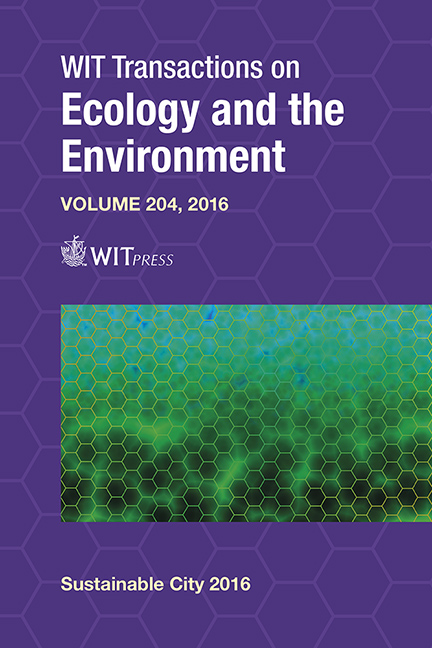The Conscious Human Ecological Experience, Conscious Design, And The Evolution Of The Built Environment
Price
Free (open access)
Transaction
Volume
204
Pages
8
Page Range
27 - 34
Published
2016
Size
310 kb
Paper DOI
10.2495/SC160031
Copyright
WIT Press
Author(s)
R. B. Dunavant
Abstract
I have set out to develop a simple tool to use within the seemingly complex field of sustainable building design and construction. In a world of perceived complexities, complex issues, and conventional thought patterns it seems that simplicity is key, the key, in solving these interconnected and complex problems that our designers are forced to face in our current time. We must understand that our species is embarking on one of the most creative and innovative times in human history and as a result has room now for the development of creative and innovative strategies to combat these problems. This is largely in part due to the fact that our species is being presented with problems that have only recently surfaced and are completely new. As designers we must truly be able to stand back, observe the problem(s) objectively as an interconnected system, and be able to do so with a different perspective. The Conscious Human Ecological Experience is the act of accepting that we are connected to this planet, that we are an evolution of this planet, and that we are involved with this planet and the ecological systems, cycles and patterns that this planet possesses. Conscious Design is the use of this awareness and this acceptance as a tool within the design and redesign of the built environment. This understanding and this new design methodology will help propel the built environment and our species as a whole into a time of transformation, a time of innovation, and a time of balance that our species has yet to witness.
Keywords
design thinking, sustainability, consciousness, evolution, built environment, systems thinking, biophilia, biophilic design, biomimicry





